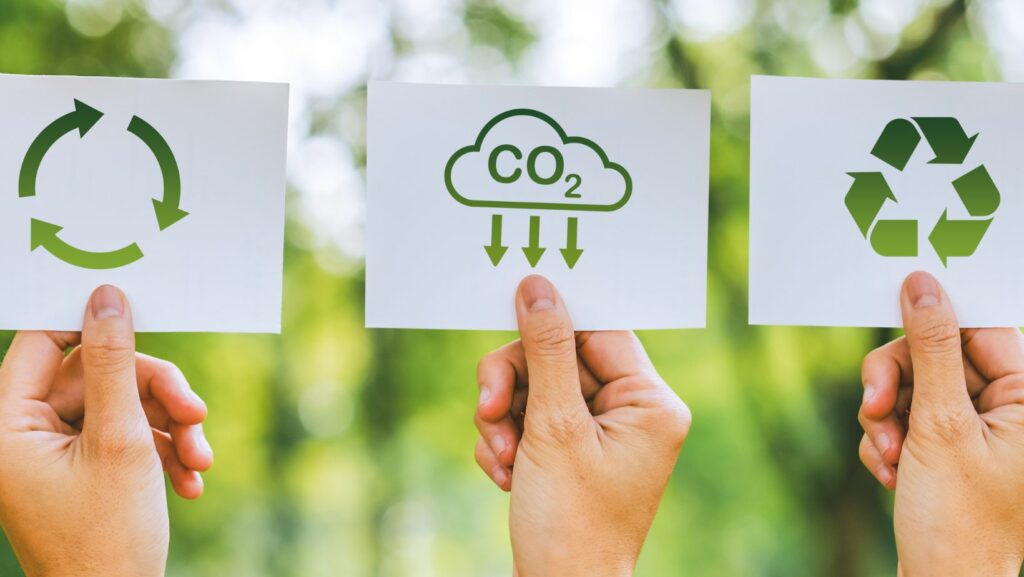In the ever-evolving automotive landscape, sustainability has become a buzzword. Yet, one name stands out in this green revolution – Volvo. This Swedish automaker isn’t just talking the talk, but walking the walk when it comes to eco-friendly practices.
From production to performance, Volvo’s commitment to sustainability is evident. They’re not just building cars, they’re shaping the future of transportation. With an ambitious plan to become carbon neutral by 2040, Volvo is setting the standard for the entire industry.
This introduction will delve deeper into Volvo’s sustainability efforts, exploring how they’re turning their green dreams into reality. So, buckle up, as we journey into the world of Volvo’s sustainable practices.
Volvo Cars Sustainability
 Volvo’s pledge to sustainability embodies an unwavering devotion to the planet. With concrete goals and strategic collaborations, Volvo stands at the forefront of a more sustainable automotive future.
Volvo’s pledge to sustainability embodies an unwavering devotion to the planet. With concrete goals and strategic collaborations, Volvo stands at the forefront of a more sustainable automotive future.
In their stride towards a greener future, Volvo mandates a clear vision. Reducing CO2 emissions by 50% per car by 2025 and attaining complete climate neutrality by 2040 are the Scandinavian automaker’s unshakeable goals. They’re designing a roadmap towards this six-fold increase in their climate targets from 2018 baselines, galvanizing their commitment to sustainable transport.
Through electrification, they expect every Volvo car to be electric by 2030, an ambitious pursuit. Their Council for Sustainable Business spearheads sustainability in all facets of the business, transforming Volvo Cars’ operations and products.
Partnerships and Collaborations in Sustainability
Volvo bolsters its sustainability efforts through strategic alliances. Partnering with Northvolt, Volvo endeavors to create a European gigafactory for more sustainable batteries. They aim to recycle or reuse 95% of their production waste, abetted by their collaboration with recycling company Stena Metall.
Moreover, Volvo formed a partnership with Google for the efficient development of Android-based infotainment systems, serving as an example of technology enhancing sustainability. Their cooperative ties extend to Umicore for battery recycling, illustrating Volvo’s dedication to the circular economy.
Key Sustainable Practices by Volvo Cars
 Leveraging its devotion to a sustainable future, Volvo Cars has forged a clear path forward through innovative practices. Two core strategies stand out in Volvo’s sustainability directive: electrification of vehicle models and reduced carbon footprint in manufacturing.Transitioning to electric power signifies a pivotal move by Volvo. It’s a lead player in this revolution, bolstering a pledge to have a fully electric car line-up by 2030. This plan, initially unveiled in 2021, mandates that 50% of global sales consist of fully electric cars by 2025, with the rest comprising hybrids. One specific model contributing significantly towards this pledge is the Volvo XC40 Recharge, a pure electric SUV that demonstrably proves Volvo’s capabilities in the electric vehicle market.
Leveraging its devotion to a sustainable future, Volvo Cars has forged a clear path forward through innovative practices. Two core strategies stand out in Volvo’s sustainability directive: electrification of vehicle models and reduced carbon footprint in manufacturing.Transitioning to electric power signifies a pivotal move by Volvo. It’s a lead player in this revolution, bolstering a pledge to have a fully electric car line-up by 2030. This plan, initially unveiled in 2021, mandates that 50% of global sales consist of fully electric cars by 2025, with the rest comprising hybrids. One specific model contributing significantly towards this pledge is the Volvo XC40 Recharge, a pure electric SUV that demonstrably proves Volvo’s capabilities in the electric vehicle market.
Reducing Carbon Footprint in Manufacturing
Volvo Cars’ commitment doesn’t stop at the car itself, but encompasses the holistic manufacturing process. The company’s objective to halve CO2 emissions per car by 2025 illustrates this point. A considerable aspect of this initiative involves the examination of manufacturing and logistic strategies. For instance, Volvo Cars’ collaboration with Northvolt for sustainable batteries underlines this effort. Moreover, partnerships with companies such as Stena Metall and Umicore, focused on recycling production waste and battery recycling respectively, further underline Volvo’s dedication to reducing emissions through responsible sourcing and circular economy practices.
Innovations in Sustainable Automotive Technology
 Volvo Cars’ dedication to sustainability shines through in their innovative technology. The company actively invests in the development of eco-friendly materials and advanced battery technology. In their quest for a greener future, Volvo Cars is prioritizing the use of eco-friendly materials. The company’s focus rests on two objectives: increased use of recycled plastics and development of bio-based materials. Their commitment is evident in their target to have at least 25% of the plastics in newly launched cars be made from recycled material, a practice initiated with the XC90 T8 plug-in hybrid. For instance, the carpeting in this model contains significant amounts of recycled plastic, exemplifying Volvo’s active steps towards a circular economy.
Volvo Cars’ dedication to sustainability shines through in their innovative technology. The company actively invests in the development of eco-friendly materials and advanced battery technology. In their quest for a greener future, Volvo Cars is prioritizing the use of eco-friendly materials. The company’s focus rests on two objectives: increased use of recycled plastics and development of bio-based materials. Their commitment is evident in their target to have at least 25% of the plastics in newly launched cars be made from recycled material, a practice initiated with the XC90 T8 plug-in hybrid. For instance, the carpeting in this model contains significant amounts of recycled plastic, exemplifying Volvo’s active steps towards a circular economy.



